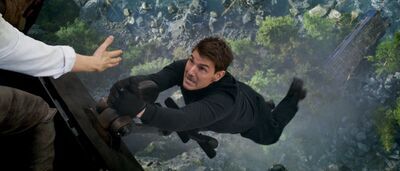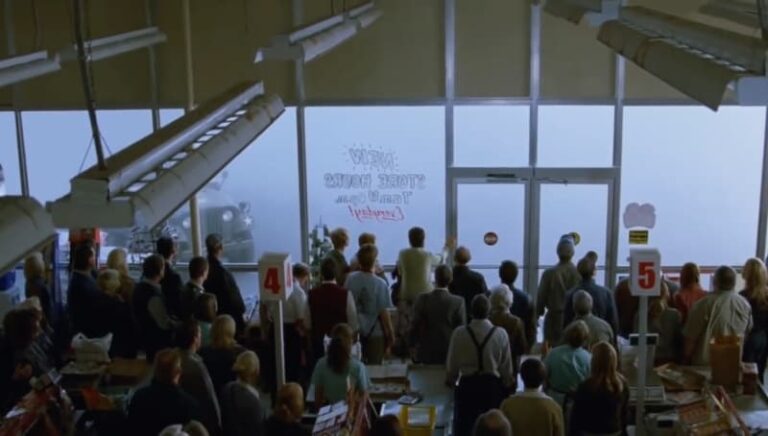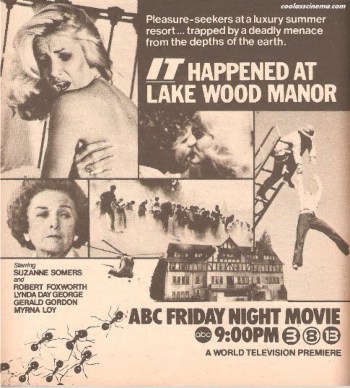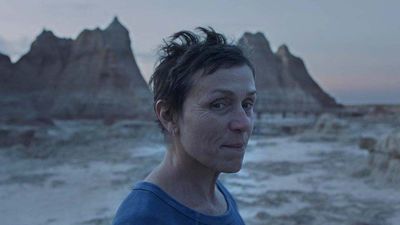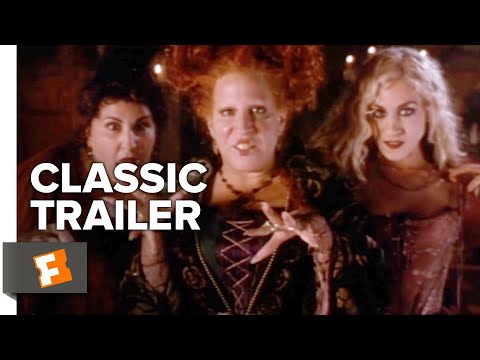The Films of David Fincher, Ranked
“You cannot capture a man’s entire life in two hours. All you can hope is to leave the impression of one,” purrs a drunk, dawdling Herman Mankiewicz (Gary Oldman) in Mank. The same rings true of David Fincher movies. With the arrival of his eleventh feature comes the delightfully deranged process of diving back into his career headfirst, an enticing prospect for anyone looking for an excuse to gorge themselves on greats or plunge into visceral violence. To a certain extent, that there are only eleven films in twenty-eight years reflects how deliberate Fincher is with his projects. But on closer look, the stat is misleading.
Prior to ever directing a feature film, he distinguished himself through a prolific career directing music videos for the likes of Madonna, Paula Abdul, and Iggy Pop, to name a few. He continued through the early years of his feature career, adding The Rolling Stones and Michael Jackson to his resume before turning his attention almost exclusively to film (with the occasional dip into television). Since then, he’s earned a reputation as a preeminent living filmmaker. And rightly so. Fincher does not do duds. He might disturb you into turning off the movie using, say, a sex toy and a tattoo gun, but he won’t bore you.
With the exception of Mank, which marks a new turn for the director (sort of), Fincher films are thrill rides soaked in gruesome violence, bleak existential despair, literal darkness, and Facebook (though I already said literal darkness). Ranging from perfect to pretty damn good, it’s a tight filmography that’s bound to leave every publication with a different ranking. Without further ado, here’s ours as compiled by Anna Swanson and myself.
11. Panic Room (2002)
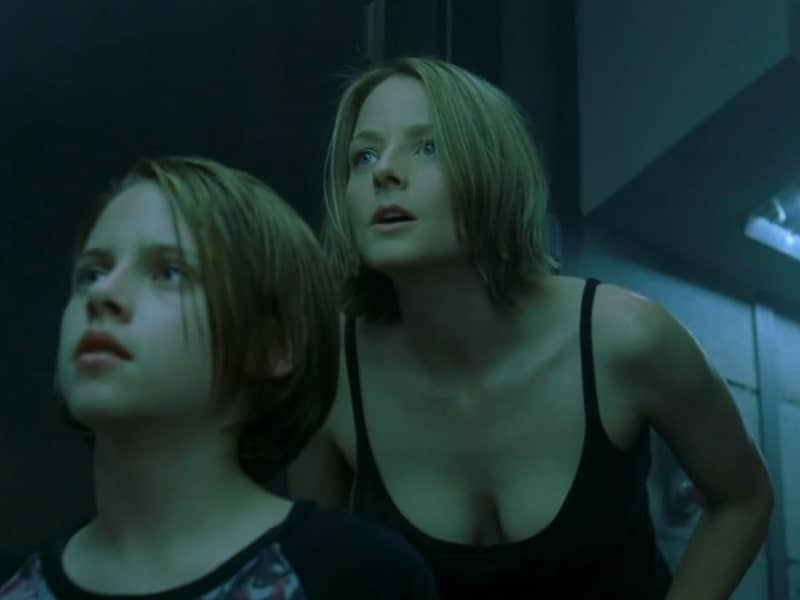
Let me start by saying that Panic Room coming last on this list was not a decision made without contention. It’s not what I would have personally gone with, but compromises are necessary and, if anything, this speaks to the incredible overall quality of Fincher’s filmography. Indeed, I imagine that Panic Room ranks low on some people’s lists for precisely the reason it ranks high on others’ — it just doesn’t quite feel like a film that was destined to be directed by Fincher, but it was.
The story of a mother and daughter trapped in the safest room in their sprawling brownstone by intruders probably could have been directed by another filmmaker. It’s got a clever gimmick and a pretty stacked cast, two major prerequisites for a decently fun thriller that could work with even a modestly skilled director at the helm. But Fincher, an auteur in the true classical sense of the word, brings his own spin to this studio project. He takes a film that could have been lost in the shuffle of 2000s genre fare and elevates it. It doesn’t dare to push the limits that some of his other films do, but it’s a prime example of what Fincher can accomplish when working in tight constraints. (Anna Swanson)
10. Alien3 (1992)
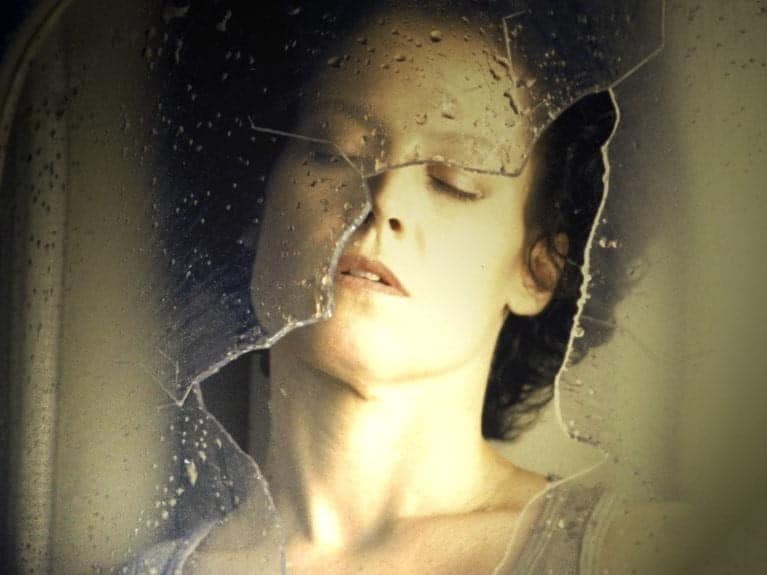
Sleeping on Alien3 is all but a canonical cinematic rite at this point. Fincher’s 1992 feature debut is caught in an oddly embittering crossroads, eclipsed by two illustrious bodies of work that would leave any movie trembling in comparison: the Alien franchise and Fincher’s career. It was cursed to follow Ridley Scott and James Cameron’s all-time iterations on the Xenomorph saga, which were as dissimilar from each other as Fincher’s would end up being from the rest.
“The Bitch Is Back” tagline alone prognosticated his career-defining confidence in the director’s chair — if taking the troubled project in the first place hadn’t already. The rest of the movie flaunted it, putting on display the technical tricks of the trade Fincher had already begun to master in his music video direction stardom.
Drenched in bodily fluids, Ripley’s third chapter is a dark, desolate, industrial prison hellscape of survival swarming with vile, hermetic men. Showcasing his ruthlessness before we could get a scene out of him, Fincher kicks things off by eviscerating the shred of hope left behind by Aliens in the opening credits. Despite Fincher’s deep disappointment in the studio’s final cut, it also shows how peerless he is when it comes to provoking unforgettable performances, in this case from Sigourney Weaver, Charles S. Dutton, and Charles Dance (with whom he’d reunite twenty-eight years later on Mank).
But as good as it actually might be, Alien3 is far from great. Ranking it high in either body of work would be rightly considered blasphemous. Fincher would never consider directing a film beleaguered by studio interference again. For the average director, it would’ve been a minor crowning achievement, but for Fincher, it’s clearly been tampered with by outside forces. If the sequel ever manages to catch a break, we’ll know it finally found the devil at that crossroads. (Luke Hicks)
9. Mank (2020)
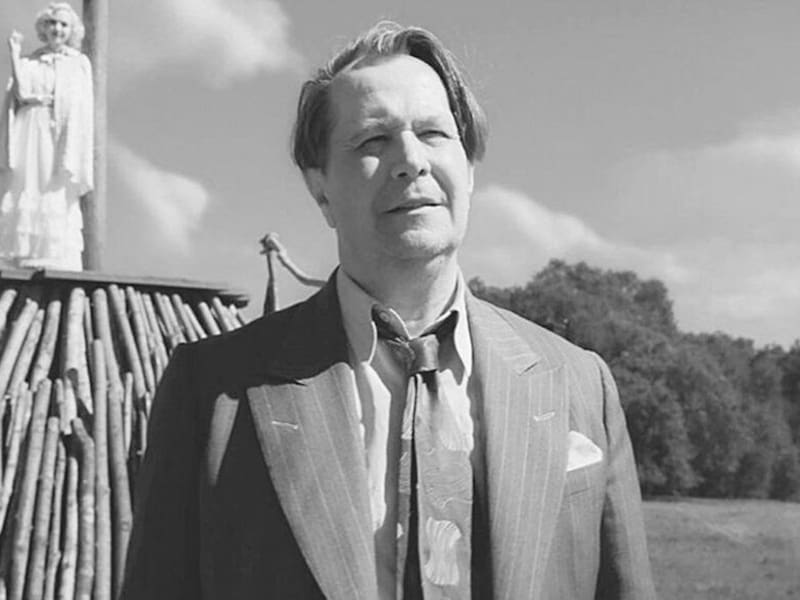
Fincher’s latest is one that will surely polarize fans, which is why we’re here to make the grand and bold statement proclaiming it to be: pretty good! Mank is a chronicle of the years, rivalries, and old Hollywood exploits that went into the eponymous screenwriter completing the Citizen Kane script. But more than just being a backstory of “the greatest film ever made,” Mank is a touching tribute to those left out of the spotlight that simultaneously feels like a thriller.
There isn’t necessarily a mystery to be solved, but that doesn’t stop Fincher from exploiting all the twists and turns of history to their full dramatic effect. Characters are at once larger than life and wholly realized with nuance and humanity. Amanda Seyfried as starlet Marion Davies is an especially remarkable standout. She steals every scene she’s in with wisecracking antics and endlessly watchable charm. At the end of the day, Mank isn’t Fincher’s best, but it’s a richly enthralling film and a welcome return for the director after six years without a feature. (Anna Swanson)
8. Fight Club (1999)
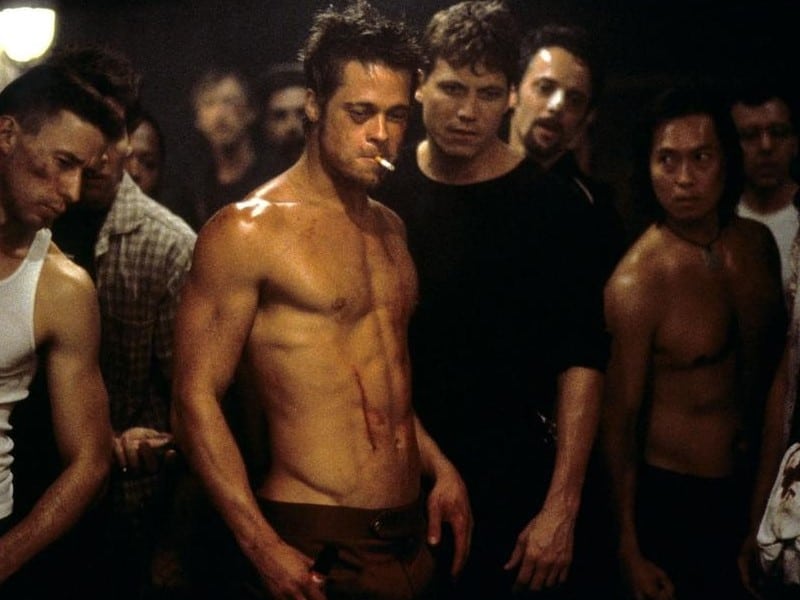
The iron throne of the invasive film-bro species (Cinephilius Brosupa), Fight Club has become synonymous with insecure masculine cinephiles who only watched one good movie (in a developmental period) before they decided they’d seen them all. It’s an unfortunate legacy of baggage for the late ’90s pop-culture staple that mounted Fincher as one of the most dynamic living directors for good reason. The repulsive acid reflux identity it has assumed of late is about as overblown as the identity it holds for too many as the greatest movie of all time, which, of course, it isn’t.
But maybe we all need to take a deep breath and dial our opinions back a notch. Fight Club was the meeting point for many, like Brad Pitt and his stunt double David Leitch (who twenty-one years later is directing Pitt in the upcoming Bullet Train). It also marks the first of four feature collaborations between Fincher and faithful cinematographer Jeff Cronenweth.
Think about what Fight Club has given us: more sexy images of Brad Pitt carved from his prime. Who is mad about that? Shocking violence, utter chaos, spirited editing, and mindfuck finales are in fine form here, but they can be found elsewhere. Pitt haranguing a squirrelly Edward Norton everyman on the concept of consumerist ideals, however, is forever. Fight Club might be near the back of our list, but there’s no slight intended. Its place is merely a testament to the ironclad strength of Fincher’s filmography. (Luke Hicks)
7. Se7en (1995)
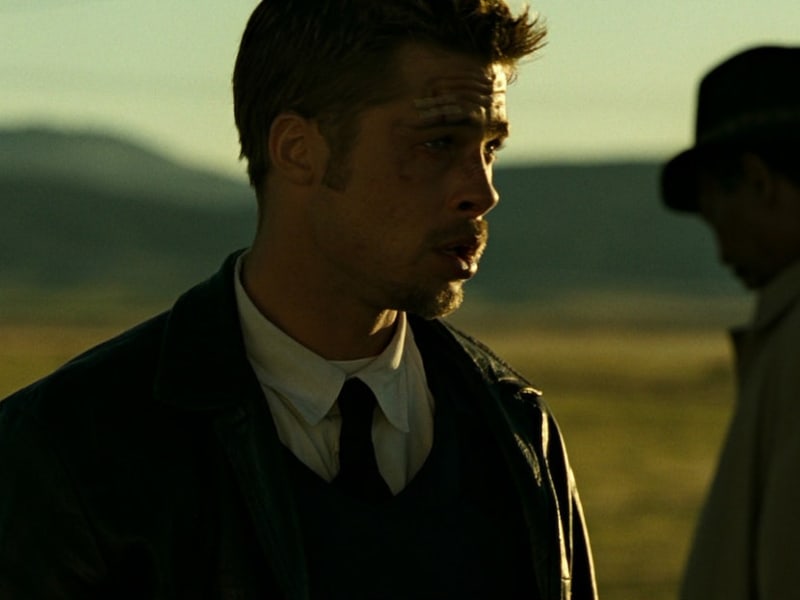
I swear this placement wasn’t on purpose. We are (just barely) above subjecting our taste to listicle puns. Alas, the universe had other plans. When I think of the grisly, seedy world of cinematic serial murder, I imagine the mangled, pierced, melted, severed, and slaughtered bodies of the seven deadly sins victims. They’re difficult to forget. The modern serial killer film was far from invented by Fincher, but his entries have damn near immortalized the subgenre. Se7en was his first – the gateway to Zodiac, The Girl with the Dragon Tattoo, and most recently, Mindhunter – and it gave us every reason to hope supremely in those that followed.
With an eerie, lurking Howard Shore score (the first of three he would write for Fincher), deft camerawork from all-time cinematographer Darius Khondji (who cites the job as some of the most technically precise and creatively challenging work he’s ever done), and the only widely cited decapitation-themed quote that makes its way into mundane package delivery banter and Christmas morning alike (“What’s in the box?!”), Se7en has cemented its place in film history for the foreseeable future.
Not to mention, it united the deadly Fincher-Pitt combo. Perhaps the only issue with Fincher’s sophomore film is the fact that an upright “7” simply does not look like a “V” at all. Clever? Maybe. Slightly cumbersome to search for online? Definitely. (Luke Hicks)
6. The Girl with the Dragon Tattoo (2011)
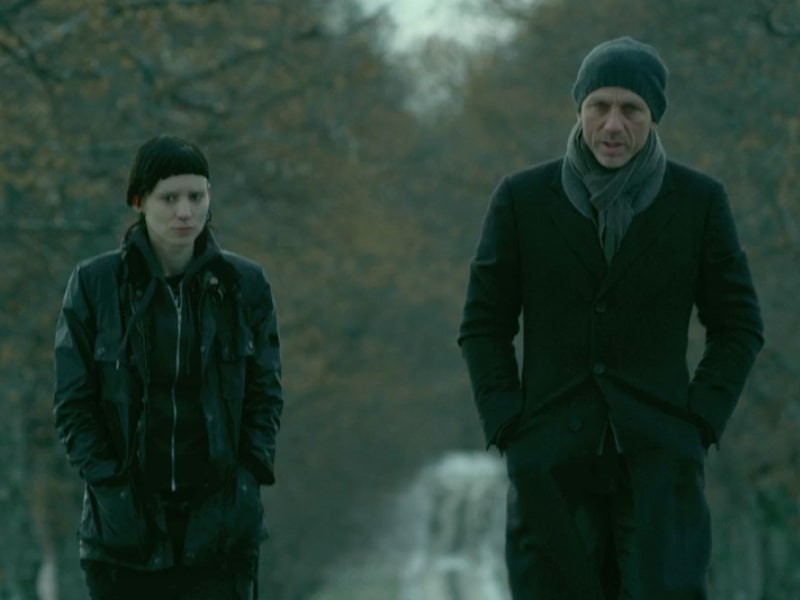
The Girl with the Dragon Tattoo is a perfect distillation of Fincher’s style. Not just for its icy precision and its moral perversion — though it has both of those — but for its ingenious melding of old and new. This is a film rich with a love for the thorough and taxing process of analog research while also being wholly in awe of the wonders of technology.
Through the endeavors of Mikael (Daniel Craig) and Lisbeth (Rooney Mara), both of whom have an unwavering commitment to the case they’re investigating, Fincher finds a perfect representation of his own proclivities and impulses. This is a film that, while its source material has been adapted by several filmmakers, feels like it was just waiting for Fincher to tackle it. There isn’t a working filmmaker who I imagine could have navigated this material with the rigor that Fincher does. And yes, the movie is better than the book. (Anna Swanson)

